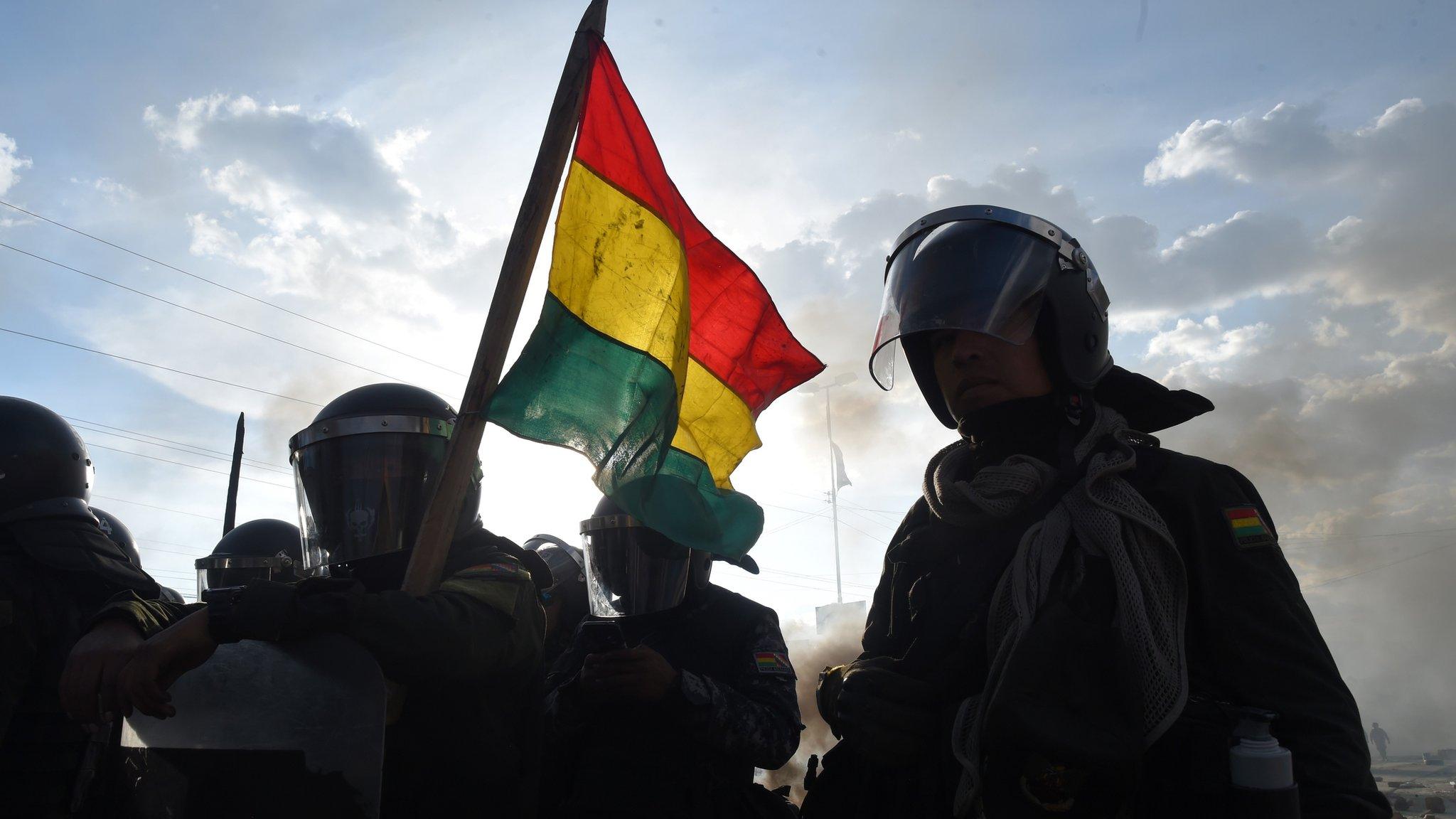Bolivia crisis: Morales accused of terrorism and sedition
- Published
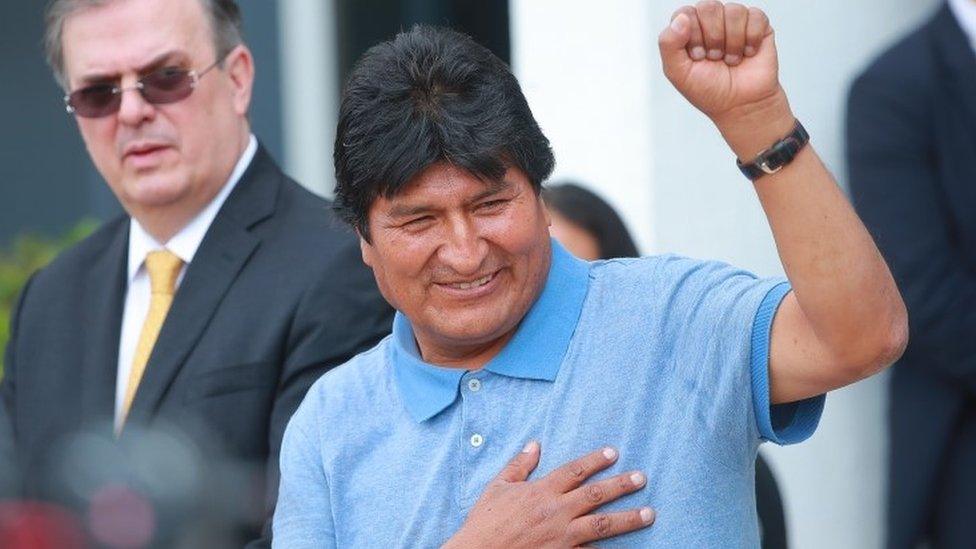
Mr Morales resigned as president amid protests over alleged election fraud
Bolivia's interim government has accused former President Evo Morales of terrorism and sedition over his alleged role in fomenting unrest in the country.
Mr Morales organised roadblocks that prevented food from entering cities, Interior Minister Arturo Murillo said.
On Twitter, Mr Morales disputed the credibility of the allegations, external.
The left-wing politician from Bolivia's indigenous community fled to Mexico after the army urged him to quit.
Violent protests have crippled parts of the country since his resignation, which Mr Morales and his supporters have characterised as a military coup.
At least 29 people have been killed in clashes between security forces and protesters since he resigned, Reuters reported.
Bolivia has been in turmoil since last month's presidential election. Mr Morales said he won but this was disputed by opposition parties.
What are the charges about?
At a press conference on Friday, Mr Murillo said a criminal complaint - based on a purported audio recording of Mr Morales from Mexico - had been filed with prosecutors.
"We are seeking the maximum penalty for sedition and terrorism," Mr Murillo said.
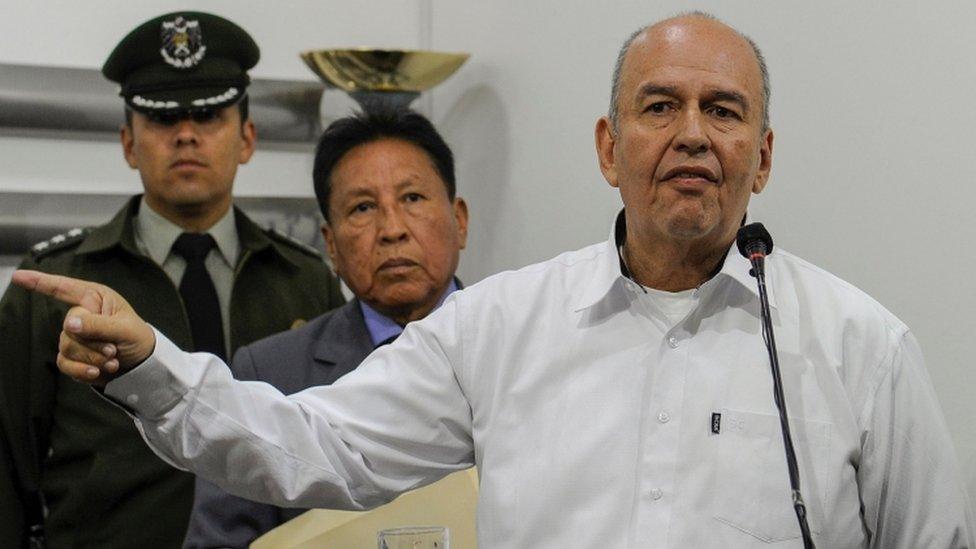
Mr Murillo (R) said he was "seeking the maximum penalty"
Responding to the allegations on Twitter, Mr Morales suggested the recordings had been "manipulated" and questioned why prosecutors weren't investigating the deaths of protesters instead.
Interim President Jeanine Áñez has previously said her exiled predecessor should face prosecution if he returns to the country.
Áñez: "He should face justice – because [he] left in the most cowardly way"
Ms Áñez, an opposition senator, assumed the presidency amid a power vacuum and has vowed to hold elections soon. She denies a coup has taken place against Mr Morales.
The US recognises Ms Áñez as leader and says it is looking forward to working with Bolivia's interim administration.
How did we get here?
Mr Morales, a former coca farmer, was first elected in 2005 and took office in 2006, the country's first leader from the indigenous community.
He won plaudits for fighting poverty and improving Bolivia's economy, but drew controversy by defying constitutional limits to run for a fourth term in October's election.
Watch Evo Morales announce his resignation
Pressure had been growing on him since contested election results suggested he had won outright in the first round. The result was called into question by the Organization of American States, a regional body, which had found "clear manipulation" and called for the result to be annulled.
In response, Mr Morales agreed to hold fresh elections. But his main rival, Carlos Mesa - who came second in the vote - said Mr Morales should not stand in any new vote.
The chief of the armed forces, Gen Williams Kaliman, then urged Mr Morales to step down in the interests of peace and stability.
- Published15 November 2019
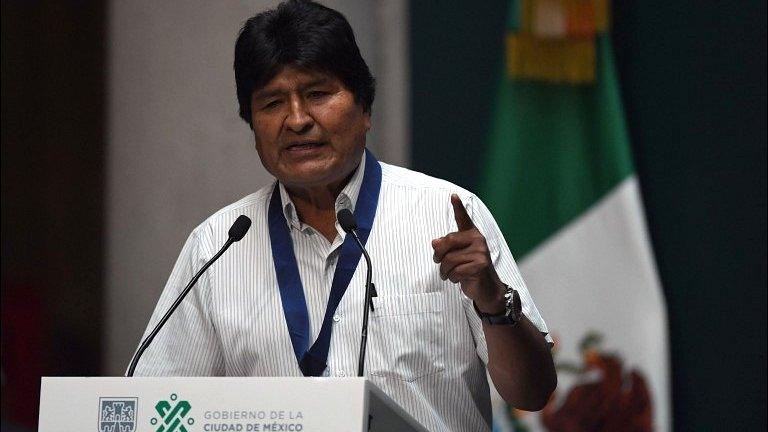
- Published13 November 2019
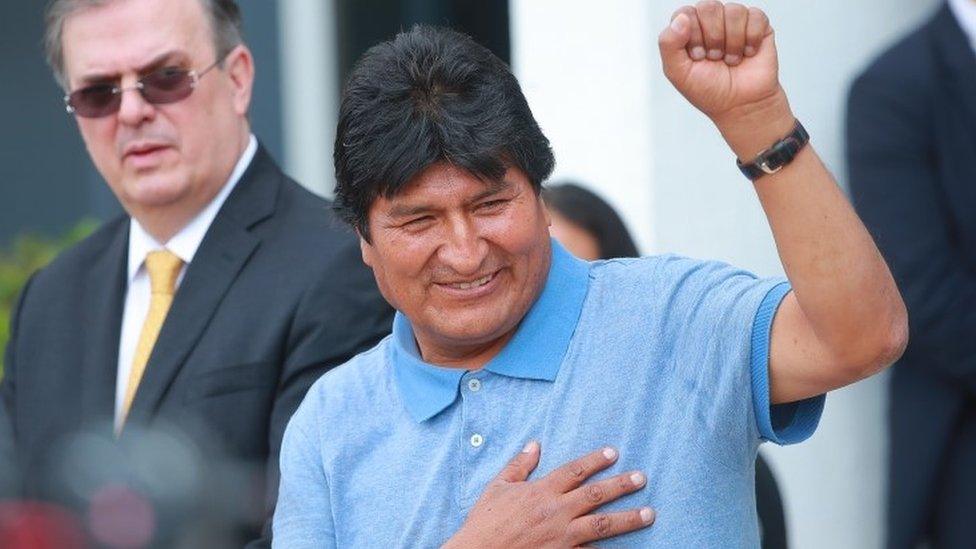
- Published16 November 2019
